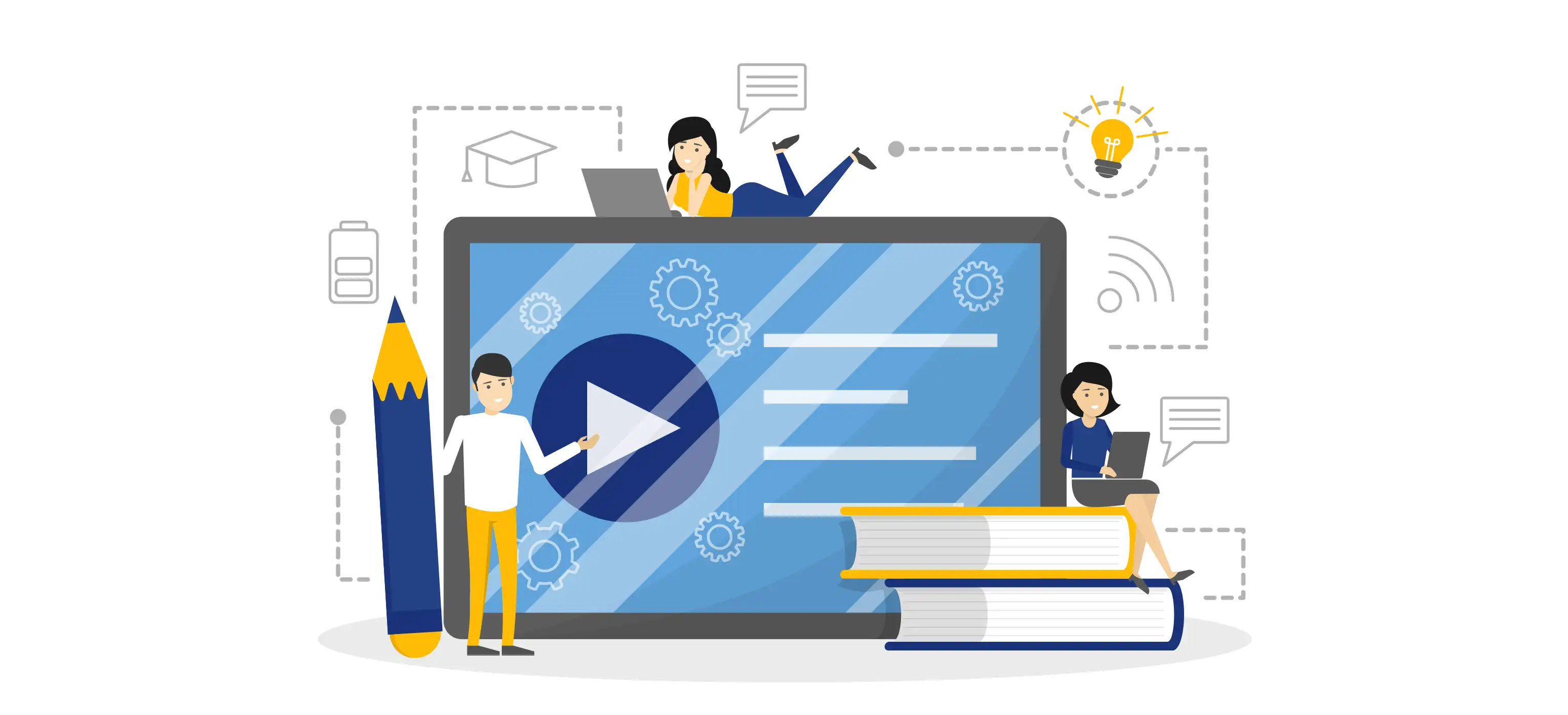 Jothi Kumar
Dec 04, 2024
Jothi Kumar
Dec 04, 2024

Colleges and universities nationwide, as well as across the globe, recognize an urgent and growing problem: multiple digital skills gaps affecting both their students and faculty. There are many challenges that students entering the workplace face, including inadequate preparation for both hard and soft skills, and a need for a new form of digital literacy that extends beyond job-specific training.
In order to meet the needs of educators and students, college and university leaders must provide forward-thinking solutions. As they adopt 21st century learning methods, they need to avoid undue disruption and pain. In the highly competitive field of higher education, they must do so in a way that sets them apart.
This blog delves into the challenges posed by the skills gap, the changing perception of degrees, and how upskilling initiatives by employers are shaping the future of education and employment.
Check out: Essential Soft Skills Employers Look In You
There are multiple skills gaps residing on campuses
Check out: Hard skills vs Soft skills
Affordability emerges as a critical roadblock hindering higher education pursuits. With soaring tuition costs, many prospective students find it increasingly challenging to access a college education.
As a result, enrollment numbers have dropped, specifically among Gen Z, compelling them to seek alternative learning options such as certification programs and online resources from reputable institutes. It is essential to tackle this affordability issue to bridge the digital skills gap and ensure equal access to education for all.
Check out: How AI Is Helping To Identify Skills Gaps And Future Jobs?
The premium placed on college degrees has significant implications for the wealth gap. While degrees remain essential for employment in many fields, they may not always align with practical job skills. Graduates often hold an advantage, even in unrelated professions, reinforcing that having a degree matters more than the specific field of study.
As the cost of higher education rises, those unable to access degrees are at a disadvantage in the job market. Addressing this premium and reevaluating employer requirements can help bridge the wealth gap and promote a more inclusive workforce.
College degrees continue to play a significant role in employment requirements, with many companies using Applicant Tracking Systems to filter candidates based on their highest level of education. While some tech companies are dropping degree requirements, certain fields, like data science, still demand advanced degrees.
However, students recognize theoretical education's limitations and seek practical experiences through internships and boot camps. As the digital skills gap widens, striking a balance between formal degrees and alternative credentials becomes crucial to aligning education with industry demands.
The digital skills gap is a pressing concern on the labor market as companies face a shortage of employees with essential skills. The demand for coding, data analytics, social media marketing, and collaborative technologies is rapidly increasing. Professionals are enrolling in short courses and online platforms to upskill, while employers recognize the need to retrain their workforce.
The pace of technological change makes on-the-job training more effective than traditional degrees, prompting a shift towards skills-based hiring. Bridging the digital skills gap is crucial to meet the challenges of a rapidly evolving job market.
What Next Steps Should College and University Leaders Take to Close Their Skills Gaps?
The rise of emerging metaverse professions, such as blockchain and UX design, exacerbates the talent shortage. These fields lack formal training programs, leading professionals to seek alternative paths to acquire relevant skills. The skills gap widens as the demand for digital currencies, virtual reality, gaming, machine learning, and 3D graphics increases.
Augmented and virtual reality technologies offer potential solutions for training workers, but the metaverse's transformative impact on learning remains uncertain. Addressing the talent shortage and providing accessible training opportunities will be vital in preparing for the metaverse's future.
Upskilling has become imperative for professionals and employers to bridge the digital skills gap. Recognizing the rapid technological changes, companies are responsible for retaining their workforce through on-the-job training and partnerships with online learning platforms like Edoxi Training Institute.
Additionally, employers are offering short-term courses and apprenticeships to upskill existing employees and promote them from within. By actively engaging in upskilling initiatives, employers can equip their workforce with the necessary digital skills, ultimately fostering a competitive advantage in the evolving job market.
Check out: Effective Leadership Training Activities For Employees
Employers are beginning to understand the drawbacks of overlooking "non-traditional" candidates who lack formal degrees but possess valuable skills. As the talent pipeline faces challenges, up to 30 million individuals with relevant skill sets are hindered by degree requirements. Companies are reevaluating their hiring practices, acknowledging that diverse candidates with alternative credentials bring unique perspectives and capabilities.
Hence skills assessments and practical evaluations are gaining prominence as more accurate indicators of an applicant's capabilities. This shift allows employers to focus on hiring individuals with relevant digital skills and expertise, regardless of formal degrees. The slow but steady move away from degree-centric hiring practices marks a pivotal step towards addressing the digital skills gap and promoting a more inclusive and diverse workforce.
Alternative hiring criteria;
Check out : How to Get Started as an AI Developer?
In conclusion, navigating the impact of the digital skills gap on higher education and employment requires a paradigm shift. Addressing affordability, reconsidering degree requirements, and promoting upskilling initiatives are vital steps toward a more inclusive and agile workforce. Embracing diverse talents and focusing on practical skills will empower individuals to thrive in the dynamic digital landscape, bridging the gap and embracing a future of boundless opportunities.
Here is the list of other major locations where Edoxi offers Professional Courses
Professional Courses in Dubai | Professional Courses in Qatar | Professional Courses in Muscat | Professional Courses in Riyadh | Professional Courses in Al Ain |

Software and IT Trainer
Jothi is a Microsoft-certified technology specialist with more than 12 years of experience in software development for a broad range of industry applications. She has incomparable prowess in a vast grouping of software development tools like Microsoft Visual Basic, C#, .NET, SQL, XML, HTML, Core Java and Python.
Jothi has a keen eye for UNIX/LINUX-based technologies which form the backbone of all the free and open-source software movement. As a Big data expert, Jothi has experience using several components of the Hadoop ecosystem, including Hadoop Map Reduce, HDFS, HIVE, PIG, and HBase. She is well-versed in the latest technologies of information technology such as Data Analytics, Data Science and Machine Learning.